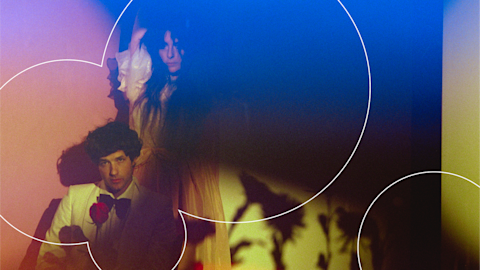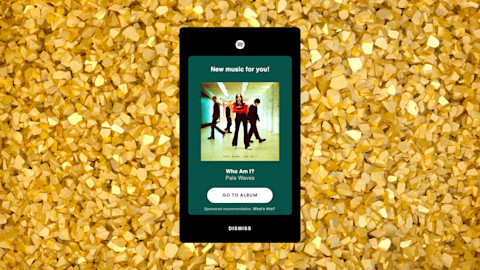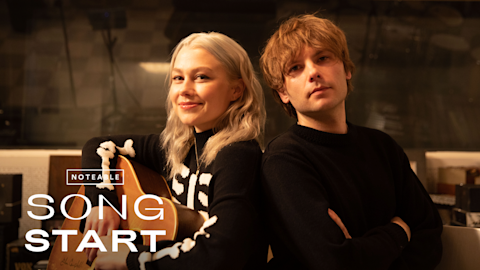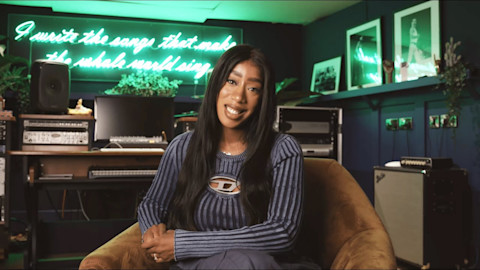When I wrote The Pains of Being Pure at Heart’s first bio on Myspace in 2007, I said we “wanted to be the most important band in the world to 18 people.” That didn’t include our own moms, so it wasn’t quite as modest an ambition as it sounds. Our first concerts were at parties we threw ourselves, or at DIY venues that were shut down before the DIY venues that opened to replace them were shut down. We opened for our favorite bands: The Manhattan Love Suicides, The Besties, My Teenage Stride, Pants Yell!, Crystal Stilts, Vivian Girls, and a maybe-still-in-high-school Titus Andronicus (who didn’t think that us being 25 and hanging out at their mom’s house was THAT creepy. After all, we could buy them beer. They liked beer).
We had a drum machine (actually, my mom’s Sony Discman with a CD-R of programmed beats I recorded) because drums are loud and we rehearsed in Chinatown at Peggy’s office after hours (thanks Jonah!). And there were other practical considerations for using a CD player in lieu of a drummer. When we did our first East Coast tour, we borrowed our bassist Alex’s dad’s ‘89 Toyota Camry station wagon (thanks Mr. Naidus!) and there was NO way a drum set could have fit in there.
On that tour we played a used bookstore in Chapel Hill and a sandwich shop in Tallahassee, and when we played an “actual venue” in DC, the only person there was Patrick Stickles (of Titus Andronicus) and a friend of his, who then sold us his half-empty bottle of wine for $6, which meant we made -$6. We did play an indie-pop festival in Athens, Georgia, where all I remember is that someone called us “The Pains of Being Boring at Heart.” We played more cities than there were days of tour, and at one point while driving through the night in South Carolina I was so sleep deprived I was pretty sure Megatron was following us. It must be said, this was a tour that we all thought was “awesome.”
We did eventually get to play in the UK, where we performed at some venues that mostly no longer exist, slept on floors and in the occasional bathtub, and were gifted an old Atari by Rocker from The Flatmates, which we then got signed by the cofounder of Sarah Records, Clare Wadd (in indie pop at least, you should meet your heroes!).
This haphazard adventure isn’t meant to make us sound “real” or anything like that. I grew up in the suburbs with a nice mom who likes Leonard Cohen. I’m just trying to let you know that finding those 18 people who were really glad we existed required a bit of searching.
![Pains of Being Pure at Heart]()
Pains of Being Pure at Heart
Another thing to know: We couldn’t really play our instruments. This never seemed to bother us, as lots of terrible bands can play their instruments and our songs were loud and short enough that it didn’t give people that much time to notice. Our major sonic concerns at this time were how much reverb we could convince the sound person at the club to put on the vocals (we sort of thought “more” was always the right answer) and whether or not there were Dairy Queens on the way to wherever we were going. Again, we were from the suburbs.
After that tour, we got booked to open for a Slumberland Records band (The Lodger) at Cake Shop, and Mike Schulman, the label’s founder, was going to be at the show. Realizing some new songs I wrote didn’t sound that good with the drum machine and because Slumberland was our favorite label, Peggy convinced me to ask my roommate Kurt to play drums. I thought he’d say no, because he was really cool and actually knew how to play music. But he said yes and then we had a really good drummer.
Kurt was also really helpful while recording our first record. Whereas we could only say things like, “Uh, can you make it sound more cool?”, he could explain the exact snare-drum sound he wanted to get on our record (he brought a CD of Heavenly’s “Les Jardin de Heavenly” to the session as a reference to sonic perfection). Also, we mixed our first record with Archie Moore, who was in Black Tambourine and Velocity Girl, so he knew what we meant in ways even we didn’t (i.e. “Uh, yes, I can make it sound more like Black Tambourine and Velocity Girl?”).
Things went on like that for a bit until we put out our first record in 2009, and weird stuff started happening like ABC News showing up in our basement, people on indie-pop message boards accusing us of looking too good (lol, but thanks!), and—even weirder—getting booked to play Primavera Sound, a huge music festival in Barcelona. I don’t exactly know how we went from being a band that a handful of strange people liked on the internet to a band that “mattered” enough that beer companies wanted to hang their logo on a stage we were playing. Don’t get me wrong, we were excited and grateful (also excited and grateful for free beer). We were just a bit clueless as to how that happened, why we were there, and how to go about playing in front of 5,000 people when we were used to playing in front of about 37.
But aside from the small fear of making total asses of ourselves, it was… cool. We had never been to Spain. The hotel the festival put us in had transparent glass in lieu of bathroom walls (INDIEPOOP) and what I later learned was called a “bidet,” which I made the ill-advised decision to vomit in. But no one had to sleep in a bathtub! There were loads of iconic bands playing who inspired us, like The Vaselines, St. Etienne, and My Bloody Valentine. But the most remarkable part of this festival’s lineup was the inclusion of other bands we were friends with, like Crystal Stilts, Vivian Girls, Marnie Stern, and Girls. We were probably more excited about trying to see other bands than our own set. And since we only had one album, it was pretty easy to make a setlist: “Let’s just play all the songs we know.”
![Pains of Being Pure at Heart Live]()
Pains of Being Pure at Heart Live
And really, what was the precedent for a band like ours getting to do anything like this? Standing on a stage over thousands of people looking out over the Mediterranean? We didn’t know what amps we were allowed to plug into, or how to explain “mas reverb por favor” to a sound person standing in a tent somewhere we couldn’t even see, much less speak to. It all worked out: We later learned that all sound engineers at Spanish festivals are paid mostly in hash, so it’ll sound pretty good regardless of what you say.
Some of the biggest bands we looked up to—The Aislers Set, The Pastels, Dear Nora, Rocketship, Black Tambourine—never got to play big rock festivals like this. They played houses, dive bars, or college ping-pong rooms. They pressed 7”s that maybe sold 200 copies and then broke up and only became “legendary” because their actual existence was about the same as other “legends”: Yeti, Bigfoot, or a large sea monster in Loch Ness (who, being Scottish, might have played bass in an early incarnation of Close Lobsters). The thought that we were doing things that our heroes never got to do was pretty weird. That we weren’t really nervous about playing was a sign of how clueless we were.
What do I remember of that show? I know how bad we must have sounded. There’s no way it could have been good, and yet? The crowd was singing along to songs like they were real songs, like we were a real band. People were screaming and jumping around, the sun was setting over the ocean beyond the crowd, and it was great in ways I could never understand or replicate. It’s very possible the audience was too stoned or drunk to notice how terrible we were, but to this day—nine years later—people all over the world who were there that year come up to me and say how much they loved that concert. I’ll meet someone in random places on tour, and they’ll tell me they were there at Primavera when we played. And I want to say “oh, I’m sorry”—but I don’t, because our band that barely knew how to play, accidentally played one of the greatest shows we ever played to thousands of people. It was like the last scene of The Music Man, if the incompetent marching band sounded a bit like Teenage Fanclub.
And that’s how I know people don’t watch bands, and they don’t even hear bands. They feel bands. I spent a lot of time after that concert trying to get “good.” I tried to learn to sing better, I tried to write songs that were “better,” and I tried to record our music in ways that sounded like what I thought “real” music sounded like. And for every way that we became “actually pretty good,” it became rarer that our music ever connected with an audience the way it did at that festival.
After the show Christoph ran off to see Sunn0))), who had some technical difficulties but just raised their arms with devil horns every time their guitars stopped working to the ecstatic delight of the audience (this is also a band who understood the important things). Kurt dashed off to see My Bloody Valentine (though he was equally excited to see a Swedish indie-pop band called Boat Club), and I stuck around to lend Marnie Stern my guitar and be amazed by all the things that guitar got to experience in her capable hands. We ran into Girls, who played the night before, and hung out with Vivian Girls, with whom we were going on tour after the festival. We’d later bond over our shared insecurities, but were flattered they thought we were like the indie-pop The Strokes. I love The Strokes. Someone took a picture of all of us the next morning checking our email in the hotel—it’s pretty iconic, and a little sad. This was before any of us had cell phone cameras. So, of all the amazing things we got to see and do and experience, the only documentation is me being a nerd in the lobby of the hotel, writing to my mom.
![Pains of Being Pure at Heart]()
Pains of Being Pure at Heart
So, if you’re playing a big festival for the first time, and you’re worried that you might be bad (you might be, but it’s a bit too late to worry about that), try to remember no one is there to criticize music (and the people that are there to criticize it are drinking their seventh beer at the VIP tent and love everything and everyone). People are there to love it, and want to see artists who express that same love of music. You’re supposed to be having the time of your life, so have it. Who cares if there’s enough reverb.
-Kip Berman









